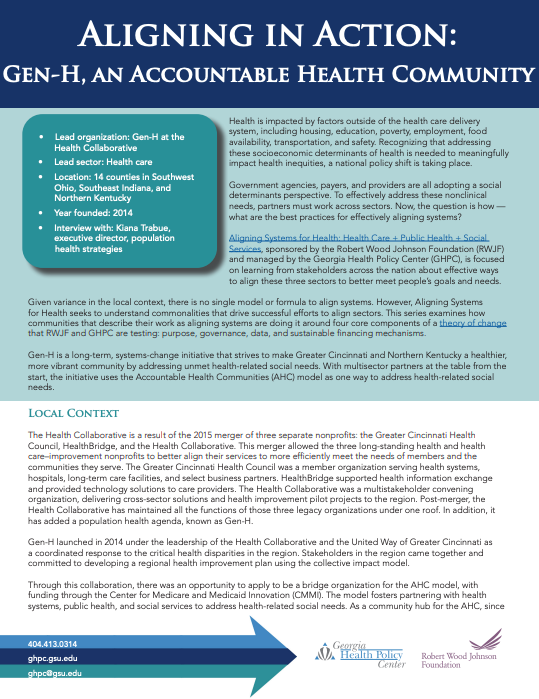
This case study examines Gen-H at the Health Collaborative, a long-term, systems-change initiative that strives to make Greater Cincinnati and Northern Kentucky a healthier, more vibrant community by addressing unmet health-related social needs. With multisector partners at the table from the start, the initiative uses the Accountable Health Communities (AHC) model as one way to address health-related social needs.
The case study explores how communities that describe their work as aligning systems are doing it around four core components of a theory of change that the Robert Wood Johnson Foundation and Georgia Health Policy Center are testing: purpose, governance, data, and sustainable financing mechanisms.
The Health Collaborative’s AHC model, Gen-H, brings together 10 clinical organizations, two managed Medicaid plans, and three community-based organizations to address the unmet health-related social needs of Medicare and Medicaid beneficiaries across three counties in Southwest Ohio. In addition to participating partner organizations, Gen-H also brings together local elected officials, Ohio Department of Medicaid, United Way of Greater Cincinnati, and other community-based organizations to oversee the AHC model and to strategize around community-wide solutions to the region’s most critical health-related social needs. Transportation has been identified as a top need by the AHC model.

 Back to Resources
Back to Resources